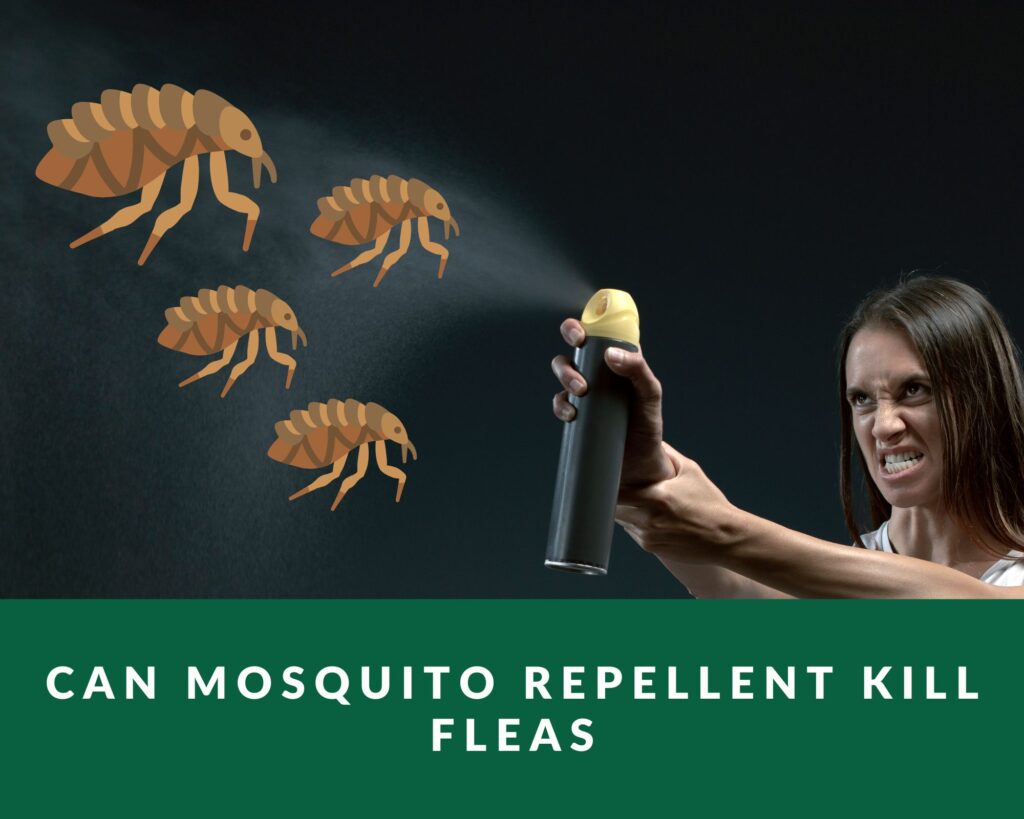
Can mosquito repellent kill fleas
No! Fleas cannot be killed by mosquito repellent. But, it does weaken their ability to smell their prey, making it impossible for them to detect your scent. However, mosquito repellent stops them from finding you and ultimately prevents them from biting you.
Flea bites may cause itchy skin, or even result in adverse reactions in people who are sensitive to flea saliva. There are tons of flea repellents available for purchase on the market. Consequently, several mosquito repellents are utilized for this. Read on to learn more about fleas and what works on fleas.
How long does it take for flea larvae to become adults
Fleas are notoriously obstinate and can quickly become a major issue for you, your home, and your pet. We’ll look into the 4 stages of flea life cycle and how to break the flea life cycle. Learning about how long it takes for flea larvae to become adults will aid its speedy removal. Below are the stages of flea life cycle:
Egg
- Fleas typically lay four to eight eggs, with the peak production rates happening in the last few days of the female’s life. Flea eggs are not adhesive, in contrast to the eggs of certain other parasites. And they typically fall to the ground right away after being laid. Flea eggs might take one to twelve days to develop into larvae.
Larvae
The larvae hatch from the egg lacking eyes or legs and seek shelter on nearby animal or carpet threads. In contrast to adult flea larvae, flea larvae eat scales of dry skin, dried detritus, food particles, and microscopic bugs instead of blood.
Flea larvae can endure for up to 18 days if the carpet is not vacuumed and if the floor’s fissures are not cleansed. The larvae exit this stage, spin silk cocoons and move on to the pupal stage. In order to conceal themselves and protect themselves until they transition into the pupal stage, larvae attach to soil and other material.
Pupae
- In the pupae stage, the flea grows all of its organs in a damp environment because the flea larvae have not yet physically grown any of their structural components. If the surrounding conditions are good and humid, the adult flea will appear within a week. A pupa might take up to a year to develop into an adult flea if the environment is unfavorable.
Adult
- In optimal conditions, the adult female flea can lay 10 to 50 eggs every day. Fleas enjoy warm, partly humid conditions, which range from 75 to 95 degrees with a humidity of 60 to 85%. An adult flea can live up to 60–100 days, which means that throughout the course of her lifespan, she could lay upwards of 2,000 eggs. Even if just half of them go on to have children. This can you mean a large number of fleas
And they’re not just a gross, itchy nuisance. If left untreated, fleas infestations can be potentially dangerous, not only for our pets but for us too. According to CDC, Flea larvae will spin a cocoon and enter the pupal stage within 5–20 days of consuming flea dirt. Until adult fleas are prepared to emerge, the cocoon shields the pupa from the elements and insecticides and repellents for a few days or weeks.
How to get rid of fleas in the house fast naturally
Can mosquito repellent kill fleas? Fleas can be repelled with the aid of DEET-based sprays. Thus, you should look for DEET-based sprays that say “Effective on fleas” when you are looking for products to assist you keep fleas away from you and your home.
Sprinkling salt to your carpet
Rentokil advises applying salt to your carpet, letting it sit for two days, and then vacuuming it up to help get rid of fleas quickly. What is the process? Fleas can be quickly and safely exterminated without the use of chemicals by using salt as a dehydrating agent. Salt functions similarly to baking soda in this regard.
Use of acidic juices
Will bottled lemon juice kill fleas? Acidic juices like lemon are a fantastic all-natural home remedies to get rid of fleas. Simply follow the instructions below to create your own remedy:
- Slice a lemon thinly, add to a pint of water, and bring to a boil.
- Pour the citrus solution into a spray bottle after letting it sit for the night.
- Spray the citrus solution on the infested furniture, pet bedding, chairs, and other areas in your house. Never soak; just dampen.
Flea Repelling Plants
Fleas don’t like certain oils, chemicals, and compounds found in certain plants, so they will try to avoid them. As a natural home remedy for fleas, it is advised to use these plants in flower beds and flower pots around your house. Mosquito repellent contain some of these oils but they do not kill fleas. Rather using flea repelling plants releases scents that scare them away.
Flea-repelling plants include:
- penny royal
- chrysanthemums.
- Lavender
- Spearmint
Flea repellent for humans home remedy
Below, we recommend the top flea sprays available on Amazon to assist you in making the right decision for your yard, house, or pet. Below are our top mosquito repellent to keep fleas out of your home:
- Vet’s best flea and tick yard and kennel spray
- Ortho Home Defense Max Bed Bug, Flea and Tick Killer
- Wondercide – Flea, Tick & Mosquito Spray
- Cutter HG-86647 flea repellent
The control of fleas may occasionally necessitate the use of both conventional insecticides and flea repellents. Using merely a flea repellant won’t get rid of your pet’s flea infestation if your home and yard are also infested.
What to do when looking for a good repellent for fleas
There are a number of factors to consider in order to choose the flea spray that will work best for your infestation. We’ve highlighted a few of them below.
- Ingredients (Synthetic or natural ingredients)
- Quantity
- Application
- Cost
- Results time frame
- Efficiency
- Safety
However if you’re unsure how to go about this you may need to hire a professional pest exterminator. Check out our previous for a list of professional bed bug chemicals.
Conclusion
Mosquito repellent can be used to help reduce or eliminate fleas in the home. While it may not kill all fleas, it can provide some measure of protection by making the environment less hospitable for them. However, for optimal flea control, a comprehensive program that incorporates a variety of approaches, including chemical and non-chemical methods, should be employed. Even with such a program, it is important to remember that fleas can be difficult to eradicate completely and that regular monitoring and treatment may be necessary to keep them from becoming a problem.

